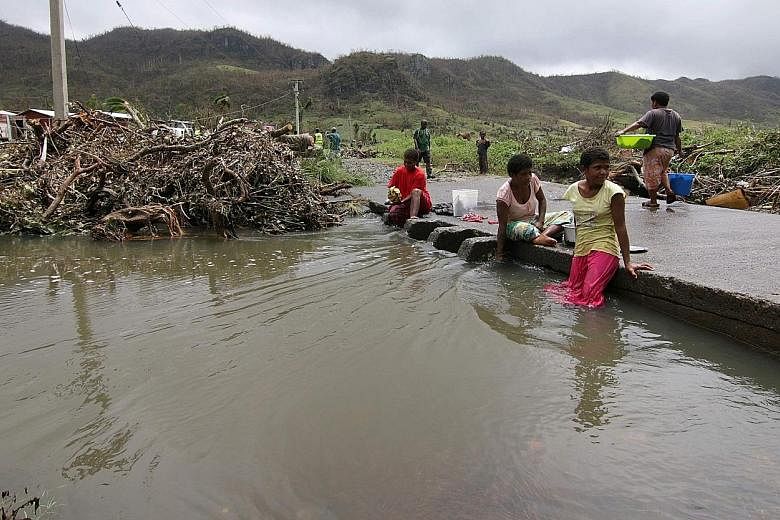With ocean levels rising in recent decades due to the warming planet, one of the most direct effects has been on the residents of low-lying Pacific nations, where coasts have been subsiding and some islands have disappeared.
The result is a looming wave of "climate refugees" who are set to present a new migration problem.
As some Pacific countries prepare to relocate entire communities, New Zealand has become the first country to introduce a climate refugee scheme.
Prime Minister Jacinda Ardern plans to create a special refugee visa for Pacific Island residents forced to migrate because of rising sea levels. The government wants to discuss the scheme with Pacific nations next year and plans to start with 100 places annually.
In an interview last week organised by a US-based climate change advocacy group, former American vice-president Al Gore, a campaigner on climate change, asked Ms Ardern about the scheme.
"We are anchored in the Pacific," Ms Ardern said. "Surrounding us are a number of nations, not least ourselves, who will be dramatically impacted by the effects of climate change. I see it as a personal and national responsibility to do our part."
Mr Gore responded: "The whole world is pulling for you."
Ms Ardern's proposal marks a turnaround for New Zealand, which made world headlines in 2015 when its Supreme Court rejected a Kiribati man's claim for climate refugee status.
The claim was launched by Mr Ioane Teitiota, who was seeking legal recognition as the world's first climate change refugee. He said rising sea levels threatened to overrun his home in the island nation of 100,000 people and made it too dangerous for him, his wife and three children to return home.
But the court rejected his bid and he was deported.
Melting ice and warmer temperatures have caused ocean levels to rise by 1.7mm a year over the past century but the rate has increased to more than 3mm a year since the early 1990s. The increases, combined with worsening extreme weather events such as cyclones and flooding, have forced entire communities on low-lying Pacific Islands to relocate.
There are growing calls for the international community to assist.
Analysts applaud New Zealand's climate refugee visas, but some note it could face pressure to accept people fleeing disasters which are not directly climate-related, such as tsunamis or earthquakes.
An international relations expert, Assistant Professor Nina Hall from Johns Hopkins University, said New Zealand may need to consider programmes for relocating entire communities rather than individuals. She said a global response will be needed, suggesting New Zealand should work with countries, such as Norway, Germany, Bangladesh and Switzerland, which have been leading the push for a global scheme to assist those displaced by natural disasters.
"(New Zealand) should be applauded for seeking to offer protection to those not currently protected by existing international refugee law, particularly in a time where many other Western countries are tightening their borders," Dr Hall wrote on The Conversation website on Nov 30.
"But, in doing so, the government should think carefully about the aims of this visa category, and orientate its climate change, humanitarian and migration policies towards Pacific needs."
Analysts also suggest the global focus should be on cutting carbon emissions to try to ensure that Pacific islanders can remain in their homes and have a long-term future.
These calls have been supported by the islands themselves. But for some islanders, any such action is already too late.
At a recent Pacific Islands conference in Fiji, Ms Telstar Jimmy, a student from Vanuatu, described the experience of having her family relocated several times due to climate-related disasters.
"The foundations of our unique heritage were taken," she told the Thomson Reuters Foundation.
"Relocation just meant safety and continuing to exist. But now the question is, safe and existing for how much longer?"

